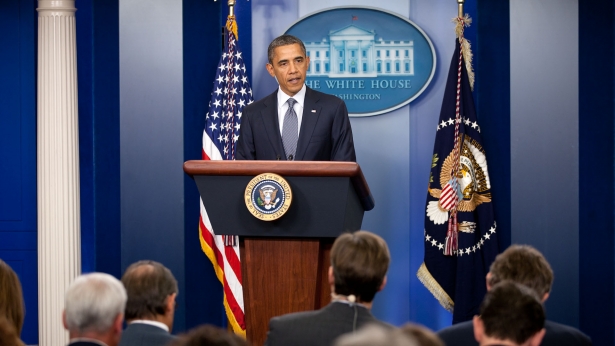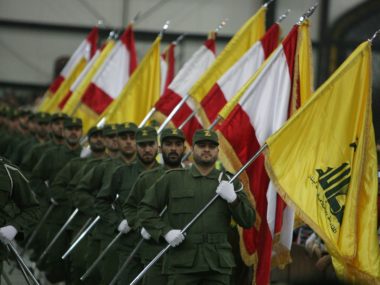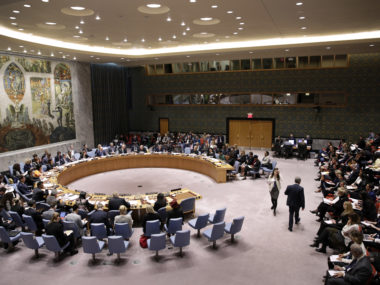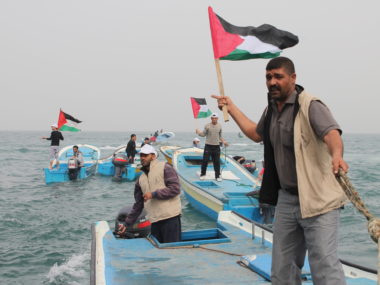
On Wednesday evening, President Obama took to the airwaves to announce his much-awaited strategy for confronting the Islamic State of Iraq and the Levant (ISIL). Here, I share some of my initial reactions to the administration’s proposed strategy. Few, if any, would disagree with the administration’s stated goals of redoubling efforts to improve intelligence, cutting off the group’s funding, stemming the flow of foreign fighters to the West, or providing humanitarian assistance to civilians (the third and fourth parts of the strategy) so I’ll skip these and go straight to the military options outlined by the president.
The first part of the two-pronged military strategy announced by Obama calls for expanding the campaign of airstrikes against ISIL targets in Iraq to (possibly) include targets in Syria. Neither the continuation nor the expansion of the air campaign is likely to have the desired effect of destroying the terrorist organization, however. At most, air strikes can degrade the organization. They cannot defeat it. This is true regardless of whether one looks at the U.S. aerial campaign as an attempt at coercion by denial (in this case, of territory) or as brute force. True, U.S. air power could prevent ISIL from seizing new territory but the group has already reached the natural limits of its expansion having captured most of the Sunni-majority areas of Iraq. Evicting them from the cities they hold through airpower alone will be hard if next-to-impossible given the demonstrated ability of terrorists to hide in plain sight. Moreover, bombing villages and towns will not only lead to collateral damage but could also backfire by increasing ISIL’s support among members of the Sunni population not yet committed.
Second, the president announced he was stepping up support to forces fighting ISIL on the ground by sending an additional 475 service members to Iraq and increasing military assistance to the Syrian opposition. The added troops, whose mission is to help train and support Iraqi and Kurdish forces, will bring the total U.S. military presence in Iraq to around 1,500. However, after a decade of U.S. training and billions in equipment and other support, it is difficult to see how the addition of non-combat personnel will help the Iraqi Army reverse the gains made by the Islamic State in the past six months. The Iraqi Army was far better trained and equipped than the enemy at the start of the summer yet they still ran. Why should we expect Iraqi soldiers to fare better going forward? Although the rules of engagement (ROE) are as yet unclear, as “non-combat advisors,” U.S. troops will be prohibited from fighting alongside the Iraqi security forces. In other words, U.S. soldiers will be put in the difficult position of being unable to enter the firefight, leading to bitter resentment and charges of abandonment on the part of Iraqi soldiers. (To be clear, I don’t believe the president should, or for that matter, would, consider deploying additional U.S. forces. I merely wish to point out that in committing 1,500 non-combat advisors the resources allocated do not align with the strategic aims articulated.) U.S. advisors are unlikely to have the desired effect on the Kurdish forces as well. After months of watching Bagdad fail to guarantee their security the Kurds are more invigorated than ever in their quest for independence, making Kurdish-Iraqi security cooperation all the more challenging.
The Obama administration’s plan to “ramp up” its military assistance to the Syrian opposition is also cause for concern. Rather than comprise one recognizable movement, the Syrian opposition is made up of a hodgepodge of groups and individuals, including the former ally of ISIL, the Al-Nusra Front. Keeping track of many of these rebel groups and their changing allegiances is like a 3-D game of snakes and ladders, except the ladders are slides. All of which is to say that distinguishing friend from foe in Syria today is not a straightforward or easy task. Members of Al-Nusra and ISIL have been fighting each other but could be spurred by the U.S. bombing campaign to reunite and, worse, decide to focus their energies on targeting U.S. personnel and interests in the region or abroad. One unintended consequence of extending the bombing campaign could therefore be to unite groups currently split only by tactics or minor differences in ideology.
As the president acknowledged, ISIL is a problem that can’t be solved by military action. Yet regaining the trust of the Iraqi Sunni population who are the key to ISIL’s defeat is likely to take years if it is even possible at all. In 2007, Sunnis willing to take a chance on American promises of a more inclusive central government and more-equal sharing of land and resources formed the Sons of Iraq/Anbar Awakening Movement and helped reduce violence and reestablish security. Winning their trust a second time might be beyond U.S. capabilities.







